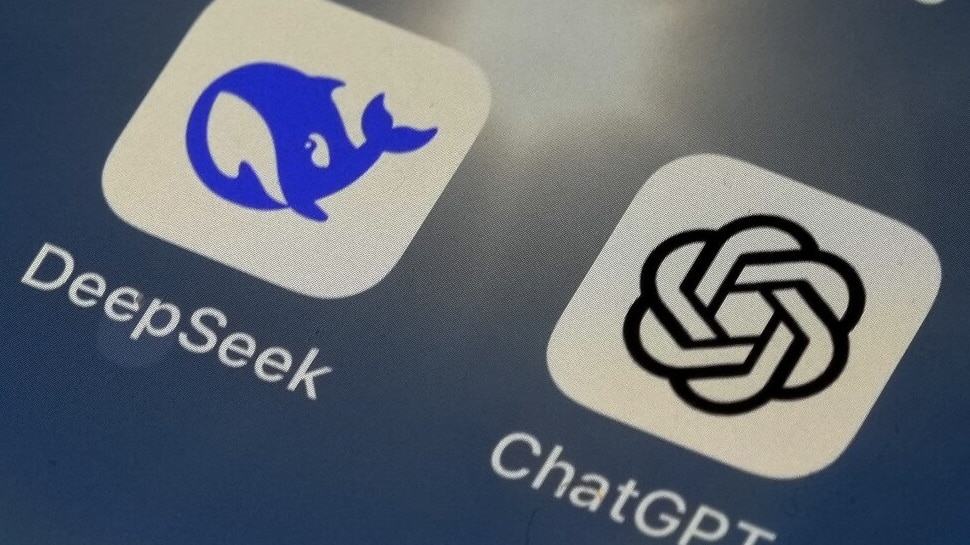 |
|
The Indian government's recent decision to ban the use of AI tools like ChatGPT and DeepSeek within government offices highlights growing concerns regarding data security and confidentiality in the age of rapidly advancing artificial intelligence. The finance ministry's directive, issued in late January, explicitly prohibits the download and use of these applications on government computers and devices, citing the potential for sensitive information to be compromised. This proactive measure underscores the Indian government's commitment to safeguarding crucial data from potential breaches, a sentiment echoed by other nations grappling with the implications of widespread AI adoption.
The decision to ban ChatGPT and DeepSeek is particularly noteworthy given the contrasting approaches being adopted globally. While some countries embrace the potential benefits of AI, others, including India, Australia, and Italy, are taking a more cautious stance. Australia and Italy's preemptive moves to shield their official systems from DeepSeek, specifically, reflect a growing awareness of the potential for foreign AI tools to pose a threat to national security and data sovereignty. The relatively low cost and computational efficiency of DeepSeek, as noted in the article, ironically amplify these concerns, suggesting that sophisticated AI capabilities are no longer exclusively in the hands of major tech giants with significant resources. This development necessitates a reassessment of national security strategies related to AI.
The timing of the Indian government's ban is also interesting, occurring during Sam Altman's visit to India. Altman's meetings with government officials and industry leaders likely served as a backdrop to the discussions surrounding AI regulation and the potential implications of widespread adoption. The contrast between Altman's efforts to promote OpenAI's technologies and the simultaneous ban on similar tools reveals the complex and evolving relationship between governments, technology companies, and the public. While OpenAI might advocate for the beneficial uses of AI, the government prioritizes national security and data protection, potentially leading to conflicting priorities and necessitating a careful balancing act to ensure innovation while mitigating risks.
The success of DeepSeek in surpassing ChatGPT in Apple's App Store rankings further emphasizes the growing competitiveness in the AI market. This success, however unexpected to established players, points towards a potential shift in the landscape of AI development and deployment. The low-cost model of DeepSeek challenges the traditional narrative of AI requiring massive investments, raising questions about the accessibility of advanced AI technologies and the potential for misuse. It’s a critical juncture where regulators must assess not only the established giants but also the emergence of agile and potentially less regulated players in the AI arena. This necessitates a more nuanced and adaptive approach to AI regulation that can address the challenges presented by both established and emerging AI technologies.
Looking ahead, the Indian government's ban on ChatGPT and DeepSeek could serve as a precedent for other countries considering similar measures. It raises important questions about the balance between promoting technological innovation and safeguarding national security and data privacy. The global community must collaborate to establish clear guidelines and standards for responsible AI development and deployment, ensuring that the benefits of AI are realized while minimizing its potential risks. International cooperation is crucial in establishing these standards, preventing a fragmented approach to regulation that could hinder innovation and create unfair competitive advantages for certain nations.
Furthermore, the incident highlights the need for robust internal security measures within government agencies. The directive to avoid AI tools emphasizes a need for stricter controls over data access and usage within governmental systems. This includes developing more secure internal communication systems and implementing stronger cybersecurity protocols to minimize the risk of data leaks, regardless of the use of external AI applications. Investing in employee training on cybersecurity best practices is also essential to ensure that employees understand the potential risks and can take appropriate precautions to protect sensitive information.
Finally, the incident serves as a reminder that the rapid advancement of AI necessitates a continuous evaluation of its implications for national security and data protection. Regular reassessment of security policies is essential to address emerging risks and adapt to the evolving technological landscape. Ongoing dialogue and collaboration between governments, technology companies, and cybersecurity experts are crucial to navigate these challenges effectively and ensure responsible AI governance. The focus should not just be on banning technologies but also on developing robust safeguards and secure alternatives to protect sensitive information.
Source: India To Ban ChatGPT, DeepSeek? In A First, Modi Govt Takes BIG Action On...Directs Officials To...
